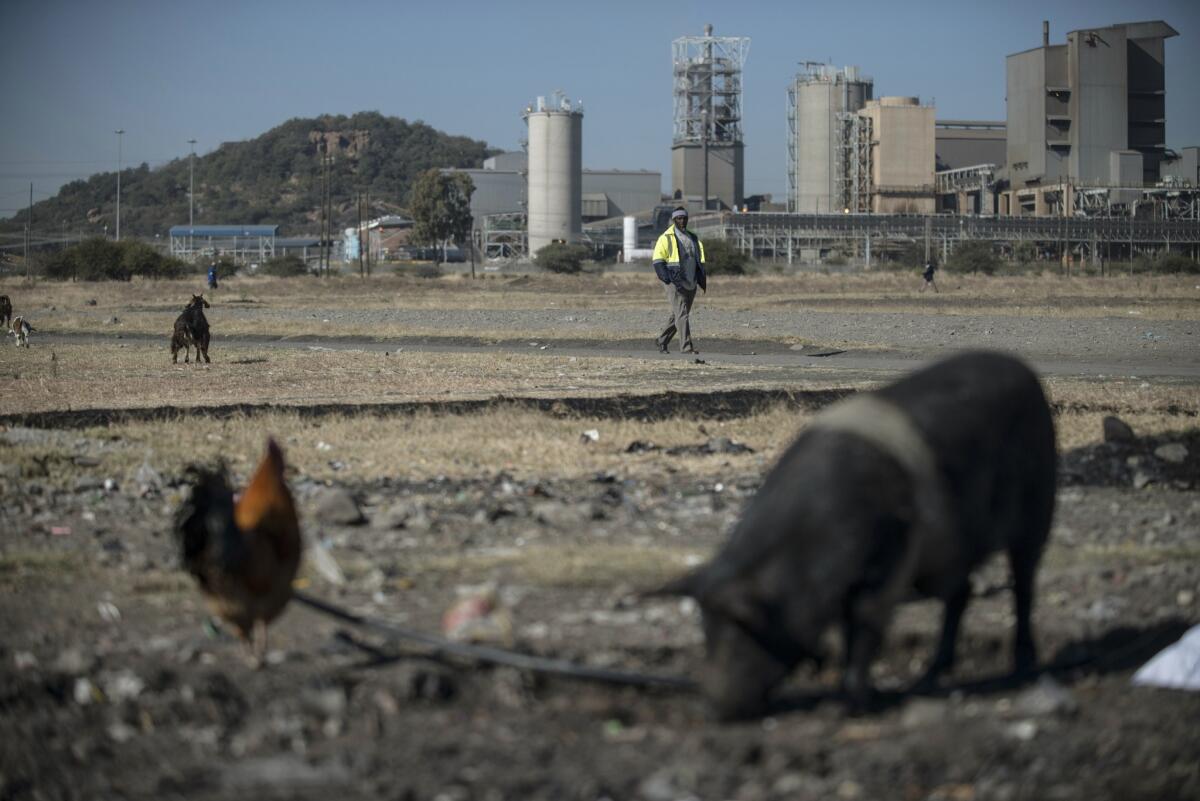Fitch, S&P downgrade South Africa’s bond rating and outlook

Two global agencies downgraded South Africa’s bond rating and outlook on Friday as the country’s economy suffers through a crippling 5-month-old strike by platinum miners.
Fitch ratings agency downgraded the country’s outlook from stable to negative, though it kept the credit rating at BBB. Hours later, Standard & Poor’s downgraded South Africa’s rating from BBB to BBB-, edging its bonds dangerously close to junk level.
A statement by Fitch said increased strike activity, high wage demands and poor electrical service were limiting South Africa’s economic growth.
The agencies’ decisions also were attributed to the nation’s increasing budget deficit. S&P cited lower than expected growth as well as pressure for wage increases in the public sector.
South Africa’s Treasury later released a statement affirming its commitment to reduce the deficit while acknowledging that events such as the platinum strike “might sometimes cause marginal short-term deviations from the forecasted path.”
However, Fitch predicted “moderate slippage” in the deficit from 4% in fiscal 2013-14 to 4.2% the following year.
Fitch also revised its growth forecast downward amid the longest strike in South Africa’s history, which helped pushed the country into negative growth in the first quarter of this year. The strike raised fears of recession and concerns that other employees would make similar demands as South Africa enters its annual “strike season” when workers, particularly in the public sector, seek wage increases.
Hopes rose Friday for an end to the platinum strike as Joseph Mathunjwa, leader of the Assn. of Mineworkers and Construction Union, said workers were on the verge of accepting a 20% wage increase. That would fall well short of the 150% raise workers demanded but ahead of the inflation rate of about 6%. The union is due to meet employers over the weekend.
Downward revisions of growth had become “a persistent pattern” Fitch said, “pointing to the economy’s susceptibility to shocks and possibly weaker potential growth.”
In a prod at a government seen by many as lacking economic direction, Fitch expressed concern about “deteriorating standards in governance and corruption.”
It said the ruling African National Congress faced challenges in its efforts to increase growth and raise living standards, calling for structural economic changes -- but expressed doubt in the capacity of the recent Cabinet appointed by President Jacob Zuma to achieve this.
“In Fitch’s view, the track record of some key ministerial appointments and shortcomings in administrative capacity mean this is subject to downward risks,” the Fitch statement said.
Zuma’s recent appointments have done little to shake the skepticism concerning his government’s ability to change the economy’s poor trajectory and deliver the kind of growth required to make a dent in unemployment, which has hovered persistently at 25% for over a decade. Taking into account those who have given up looking for a job, the rate is 34%.
Follow @RobynDixon for news out of Africa.
More to Read
Start your day right
Sign up for Essential California for news, features and recommendations from the L.A. Times and beyond in your inbox six days a week.
You may occasionally receive promotional content from the Los Angeles Times.






